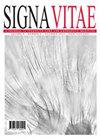Effect of an artificial-intelligent chest radiographs reporting system in an emergency department
IF 0.6
4区 医学
Q3 EMERGENCY MEDICINE
引用次数: 0
Abstract
Though chest radiography is a first-line diagnostic tool in the emergency department (ED), interpretation has a high error rate. We aimed to evaluate the usability and acceptability of deep learning-based computer-aided detection for chest radiography (DeepCADCR) in an ED environment. We conducted a single-institution survey of emergency physicians (EPs) who had used DeepCADCR (Lunit INSIGHT Chest Xray (CXR), version 3.1.4.1) as part of their ED workflow for at least three months. We developed 22 questions that assessed the subscales of effectiveness, efficiency, safety, satisfaction, and reliability. A seven-point Likert agreement scale was used to rate the responses. A total of 23 EPs who completed the survey was enrolled in the study. When averaged by subscale, satisfaction scores were highest (mean 4.71, standard deviation (SD) 1.43), and safety scores were lowest (mean 4.3, SD 0.72). When scores were converted to acceptability, the total average acceptance of DeepCADCR was 86.0%, with higher scores in ED residents than ED specialists for all subscales. Use of DeepCADCR in the ED workflow was well accepted by EPs.人工智能胸片报告系统在急诊科的应用效果
虽然胸部x线摄影是急诊科(ED)的一线诊断工具,但解释有很高的错误率。我们旨在评估基于深度学习的计算机辅助胸部x线摄影检测(DeepCADCR)在ED环境中的可用性和可接受性。我们对使用DeepCADCR (Lunit INSIGHT胸部x光(CXR),版本3.1.4.1)作为急诊科工作流程一部分至少三个月的急诊医生(EPs)进行了一项单机构调查。我们开发了22个问题来评估有效性、效率、安全性、满意度和可靠性的子量表。7分李克特同意量表被用来对回答进行评分。共有23名完成调查的EPs被纳入研究。当按分量表平均时,满意度得分最高(平均4.71,标准差(SD) 1.43),安全性得分最低(平均4.3,SD 0.72)。当得分转换为可接受度时,DeepCADCR的总平均接受度为86.0%,急诊科住院医生的得分高于急诊科专家。在ED工作流程中使用DeepCADCR已被EPs所接受。
本文章由计算机程序翻译,如有差异,请以英文原文为准。
求助全文
约1分钟内获得全文
求助全文
来源期刊

Signa Vitae
医学-急救医学
CiteScore
1.30
自引率
9.10%
发文量
0
审稿时长
3 months
期刊介绍:
Signa Vitae is a completely open-access,peer-reviewed journal dedicate to deliver the leading edge research in anaesthesia, intensive care and emergency medicine to publics. The journal’s intention is to be practice-oriented, so we focus on the clinical practice and fundamental understanding of adult, pediatric and neonatal intensive care, as well as anesthesia and emergency medicine.
Although Signa Vitae is primarily a clinical journal, we welcome submissions of basic science papers if the authors can demonstrate their clinical relevance. The Signa Vitae journal encourages scientists and academicians all around the world to share their original writings in the form of original research, review, mini-review, systematic review, short communication, case report, letter to the editor, commentary, rapid report, news and views, as well as meeting report. Full texts of all published articles, can be downloaded for free from our web site.
 求助内容:
求助内容: 应助结果提醒方式:
应助结果提醒方式:


